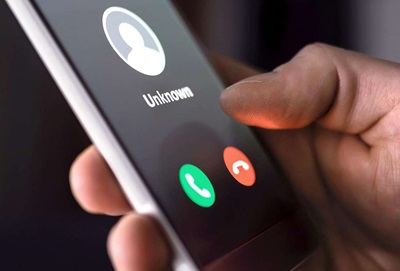Article
How to recognise a scam
Super and investments 101Date Posted: 28 September 2022At Mine Super, we're very serious about protecting your information. If you have any concerns, we can put in place extra security measures to protect your account – such as adding an extra password or security question before we process any transactions over the phone. To set this up, just give us a call on 13 64 63. |

Keep control – know when you can access your super
Common scams
Scams are constantly evolving and with a growing reliance on technology it's important you understand how to keep your personal information safe. In 2020 alone, Australians lost over $850 million to scams, according to ACCC's Targeting Scams report (PDF). There's a wide range of scams, from dating and romance to investment, prize and lottery scams and identity scams. Common techniques used by scammers to manipulate their victims include making exclusive offers that you 'don't want to miss out on' or asking for small commitments, such as completing a survey, to make you more likely to comply with larger schemes down the track.
Not all scams are done online. In fact, the majority of scams are done via the phone (47.7%) followed by email (22%) and text message (15%). Scammers are clever and everyone can be vulnerable to scams. Being informed can help you identify and avoid scams. Here's an overview of some widely used scams and how to recognise them.
- Identity theft (phishing)
Scammers want to steal your personal information for financial gain, often by sending you links to realistic looking (but fake!) websites. They can also break into your mailbox at home, hack your email, get you to complete a fake online quiz or survey or buy something from a fake online store. Once they have your personal details, they’ll use this to purchase expensive things or subscriptions in your name, access your bank account or open a new one in your name.
Protect yourself: Be careful when sharing your personal details, especially online. Think before filling out surveys, entering competitions or opening links or attachments from unknown sources or businesses you haven't purchased goods or services from. - Investment scams
Found out about an investment opportunity that sounds too good to be true? It probably is. You may discover this 'unique opportunity’ online or an 'expert’ contacts you out of the blue, offering a low-risk, high return opportunity that sounds legitimate. They often have flash websites and sophisticated looking platforms. Generally, these scams get you to invest a small amount to begin with, your money quickly grows, encouraging you to invest more. Unfortunately, once they have your money, they may take large fees or you may never get it back at all.
Protect yourself: Don't let anyone pressure you into making (hasty) decisions. Do your own research and check if the provider has an Australian Financial Services licence, which you can find out on the MoneySmart website. To reduce the amount of unwanted telemarketing calls you can register your phone number in the do not call register. - Dating and romance scams
Scammers create fake online profiles on dating sites and social media. They approach you and gain your trust, but when you want to meet, there's always something stopping them. They tell you a convincing story about why they need to borrow money, but no matter how much you give, they'll always ask for more. Victims often suffer substantially, both emotionally and financially.
Protect yourself: Never send money to someone you've only met online. Be careful when sharing intimate pictures or videos online which scammers could later use to blackmail you. It's also worthwhile doing an image search of your online date to help determine if they really are who they say they are. - Threat and penalty scams
These scams use threats to scare you into handing over money. The scammer may call you and threaten with arrest or send you an email claiming you owe money for a speeding fine, a tax office debt or an unpaid bill. During the phone call, you'll be pressured into paying immediately; they'll tell you the police will be sent to your house, your service will be cancelled or you’ll be charged excessive penalty fees if you don't pay now.
Protect yourself: Before taking any action, think and check whether the story is true. Do not use the contact details provided in emails or given to you during phone calls; verify them by calling the organisation directly or from their website. Remember that no legitimate business or government agency will insist on payment via unusual methods such iTunes or Google Play gift cards, money remitters like Western Union or virtual currency such as Bitcoin.
Have you been scammed?
If you've lost money to a scam or given out your personal details to a scammer, you're unlikely to get your money back. However, there are steps you can take straight away to limit the damage and protect yourself from further loss. Check out the Scamwatch website for more information on where to get help.
How we help protect your identityWe collect your personal information for superannuation and other related reasons, for example, to allow us to follow the law and let you know about other services and products that might be available to you because you have an account with us. |
More information on how to limit your risk of fraud
For more details on how to spot, avoid and protect yourself from scams, check out the ACCC's Little Black Book of Scams (PDF). You can also visit websites such as:
- Moneysmart which provides practical guidance on what to do if you think your identity has been stolen;
- The Australian Cyber Security Centre (ACSC) for tips on how to ensure your devices and accounts are secure; and
- The Office of the Australian Information Commissioner on how to respond to a data breach notification.